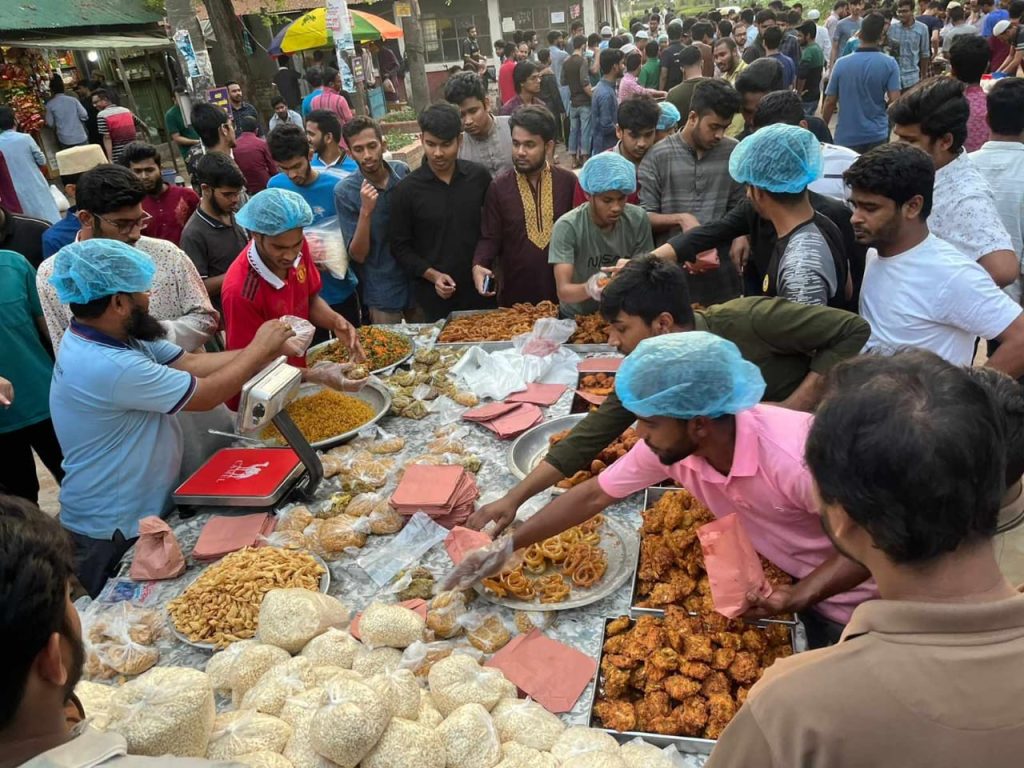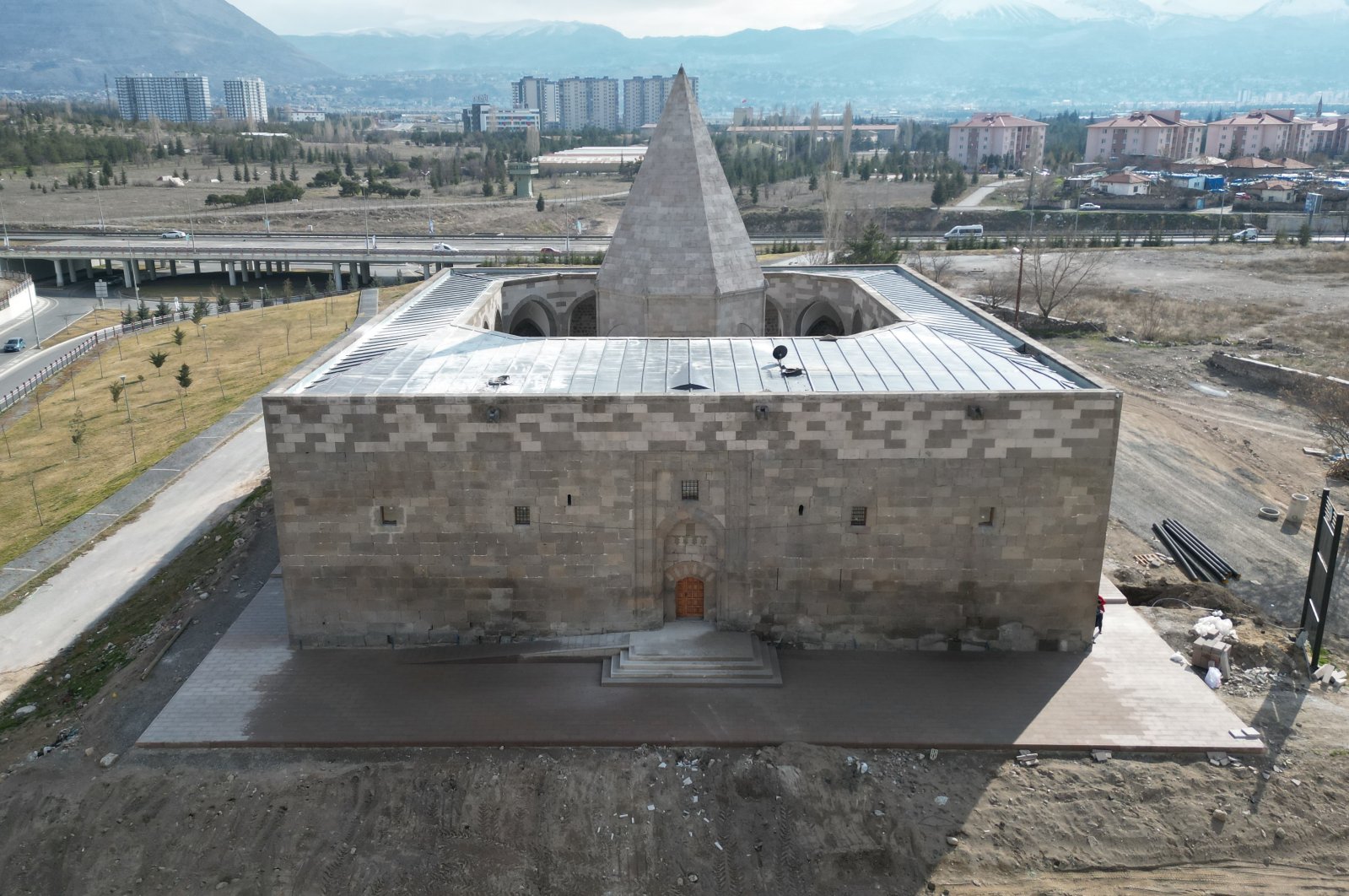Ikhbar.com: Shortly before the call to prayer, people swarm the Chawkhbazar iftar market in Bangladesh, congregating along the spillover market. Every afternoon during Ramadan, they visit the numerous vendors selling a variety of delicacies in order to break their fast.
The enthusiasm was also felt by Muhaimenu Raysha, a student at the Majid Jarina Foundation School and College in Shariatpur. She considers herself lucky to be able to spend her entire Ramadan at home without worrying about educational schedules.
She stated that during Ramadan, educational institutions in Bangladesh are generally closed. Some, though, are only open until 3 or 10 p.m. Government and business offices, however, will be open throughout the month of fasting.
Bangladeshis will commence the customary Ramadan on the first day of the auspicious month that the government has formally designated.
“In Bangladesh, Ramadan and Shawwal begin by seeing the moon in the sky. We start fasting based on the decision of a special committee ‘Chand Dekha Comittee’ controlled by the Ministry of Religious Affairs,” she told Ikhbar.com, on Saturday, March 16, 2024.

The 19-year-old girl, known by her nickname Raysha, stated that the majority of Bangladeshis are currently dissatisfied with the ongoing rise in food prices. She finds this to be really depressing because it makes it difficult for customers to find the necessary items they need for Ramadan.
Thankfully, communities have emerged to regulate the exorbitant food prices. A few competent vendors additionally offer their goods at fair costs.
The good thing about the price increase is that it’s considered one of the month’s challenges. In actuality, a number of religious customs related to Ramadan are still enthusiastically observed in Bangladesh, according to Raysha. A fundamental component of the nation’s Ramadan customs is the 20 rak’ah tarawih prayer.
Bangladeshis think that their reward for participating in more prayer during Ramadan will be bigger.
“After every maktubat (daily obligatory) prayer, we recite 1.5 juz of the Quran. Thus, 30 juz of the Quran is completed in 27 days of Ramadan,” said Raysha.
[Indonesian version] Ramadan di Bangladesh, ‘Musim Semi’ Kekayaan Kuliner dan Tradisi
Ramadan culinary specialties
There are numerous special dishes in Bangladesh that are only available during Ramadan. Beguni is one of the several special delicacies found solely in Bangladesh during Ramadan. Beguni are a type of food consisting of tiny eggplant slices that are fried in oil after being rolled in ‘gram’ flour.
“Also there is alur chop which consists of boiled potato filled with different spices and then coated with gram flour and fried in oil,” says Raysha.
Piyaju is another well-liked dish that is essentially prepared into little balls using lentil batter, onion, pepper, salt, and a variety of other spices before being deep-fried in oil. Other cuisine items include vegetable chops and egg chops, among others.
In addition, chickpeas are a common food in Bangladesh. It is cooked with various spices and eaten with puffed rice. This dish is commonly served when breaking the fast in every home.
“This food is consumed by everyone at the end of Iftar. Since all these foods are fried in oil, they are considered junk food,” she said.
Various food vendors make these dishes through spontaneous stands during Ramadan. Still, a lot of Bangladeshi wives and girls prefer to prepare these meals by hand and serve them hot to their families.

The stretch at the end of Ramadan
Muslims in Bangladesh will assemble to pay zakat fitrah, which is open from the start of Ramadan until the day of Eid, much like Muslims in other areas of the world.
The government of Bangladesh is directly in charge of overseeing the zakat fitrah custom. The Islamic Foundation, an official organization created by the government, decides how much. Several groups will deliver the zakat to those in need after it has been collected.
“But many people perform the work of Zakat on their own initiative. And the villagers perform their zakat and fitrah through the mosque,” she adds.
Moreover, the latter ten days of Ramadan, which are regarded as days of sin forgiveness. For the most part, the elderly spend those ten days in itikaf.
They isolate themselves in a designated space, reciting prayers and engaging in additional acts of worship. For these ten days, they didn’t speak to one another.
“In Bangladesh, mainly the elderly do itikaf more. But there are some young men and women who do itikaf for self-purification,” Raysha said.









